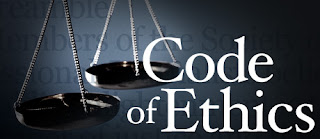Week 9
In one of the biggest news story and surprise move by a news organisation, News of the World recently shut down its operations on 6 July in the midst of phone hacking scandals surrounding the newspaper. News of the World was Britain's biggest selling newspaper and is owned by James Murdoch, a member of the Murdoch dynasty. News of the world had been in existence for 168 years and this move came as a surprise to many. It is widely reported that the investigators working for the newspaper hacked into the mobile phones of victims of 7/7 and murder victims. In addition, they are alleged to have bribed several police officers. Even British politicians have long called for the newspaper and the personnel responsible to be dealt with.Of course, the Murdoch family vehemently denies most of these allegations and the shut down is seen as a move to put a stop to the scandals. However, I believe the trust has already been lost. Several critics said that innocent employees of News of the World will be without job, whereas the top executives indirectly responsible for these allegations are let off the hook or simply move to its sister newspaper, The Sun.
Behaviours such as phone hacking and bribery are unethical and should never be condoned. As stated in my previous blog post, no matter the circumstances, it is unjustifiable for a journalist to commit a crime to expose another crime. In my opinion, the result of such scandal arise due to commercialisation and media ownership. For monetary purposes and in order to gain readership in the midst of high competition, journalists are sourcing out 'juicy' news that would entice readers. This is why private information are highly sought after to beat fellow competition from other newspapers. When we trace back to the origin of newspaper and the media as a fourth estate, we see how this principle has shifted and is seldom followed by huge media corporations. This is a comment posted in The Telegraph which I found it interesting to reflect on:
"The News of the Whirled was a failing commodity long before the scandal. Every thing the Rupert Murdoch touches is corrupted. He gobbles up media in an attempt to influence and distort the people's perception of society, offering up an unrealistic and alternate universe. Murdoch is a dangerous man who appeals to the weak minded and the perverse. He must be censured."
(The Telegraph, 2011)
Reference
The Telegraph, 2011, News of the World shut down in bid to end phone hacking scandal, Viewed 19 July 2011,http://www.telegraph.co.uk/news/uknews/phone-hacking/8624421/News-of-the-World-shut-down-in-bid-to-end-phone-hacking-scandal.html

